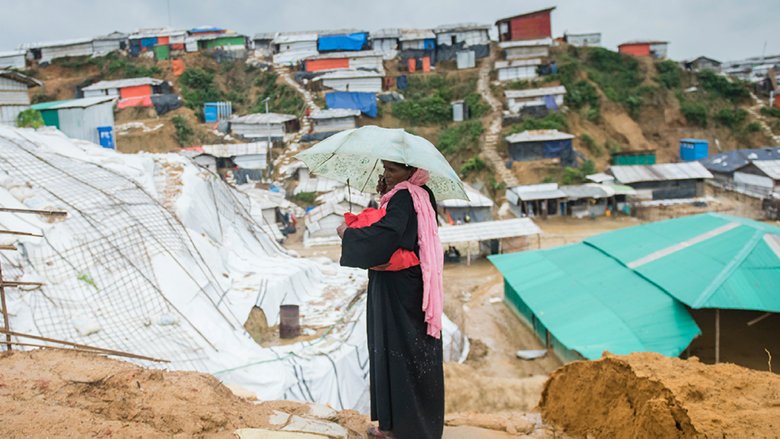Overview
Forced displacement is a complex development challenge that requires host countries to have access to robust, reliable and timely data in order to be able to respond effectively. Although forced displacement disproportionately affects low- and middle-income countries, where nearly 75 percent of the world’s refugees live, the bulk of relevant data currently comes from high-income countries.
Building on recent World Bank efforts to collect representative data on forcibly displaced peoples (FDPs) and their hosts in several countries, the Bank has invested in a harmonization effort of representative surveys covering 10 countries across five regions that hosted displaced people in the period 2015-2020. The findings from the harmonized surveys are summarized in three Policy Briefs.
Policy Brief 1: A Profile of Forcibly Displaced Populations and their Hosts (PDF)
The harmonized data highlights key patterns in characteristics and socio-economic outcomes among displaced and host populations. Displaced households are consistently more deprived than host communities, albeit with differences across population groups and distinctive local patterns.
Forcibly displaced women and children tend to precede the rest of the family when leaving their home country, and sometimes men do not join them for several years. This highlights the need for policies aimed at building opportunities specifically for these population groups.
Examples of key outcome gaps are lower schooling rates observed among displaced households, even in middle-income countries, and the disproportionally wider employment gap for displaced women vis-a-vis men.
Displaced households are more deprived than their local counterparts in almost every aspect, including ownership of household and productive assets, children’s educational outcomes, and labor market outcomes. This is exacerbated in lower-income countries and among refugees living in camps.
Policy Brief 2: Do Legal Restrictions Affect Refugees’ Labor Market and Education Outcomes? Evidence from Harmonized Data (PDF)
In host countries, the legal environment governing displaced populations matters. More liberal regimes tend to contribute to better education and employment outcomes.
A more liberal policy environment, giving refugees the right to work and to move freely, is associated with higher refugee employment. This applies to refugee women in particular.
In host countries where educational policies are more liberal, refugee children are more likely to be in school, and to be able to read and write.
These findings hold only when we compare refugees and host populations within the same context, that is, when we compare the employment gap between refugees and hosts in one country to that same gap in other, nearby countries.
Policy Brief 3: Welfare in Forcibly Displaced Populations: From Measuring Outcomes to Building Capabilities (PDF)
Measuring and strengthening refugees’ capabilities, while supporting their basic needs, is crucial for their long-term well-being and integration into society.
In the immediate aftermath of displacement, humanitarian delivery of basic needs is a priority. Over time, the extent to which refugees can contribute to society becomes increasingly important for their well-being.
Monetary poverty is not a sufficient measure of the welfare of refugees, especially when legal restrictions deprive them of mobility and the opportunity to work. More attention needs to focus on measuring indicators that help understand the broader constraints that limit refugees’ capability and access to opportunity.
Systematic data collection across a broad range of indicators can provide a better understanding of the potential trade-offs and implications of refugee policies for host countries, and thereby shape more effective policy interventions.
---------------------------------------------
Harmonized Database of Forcibly Displaced Populations and Their Hosts 2015-2020
